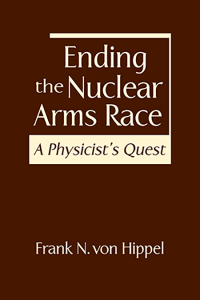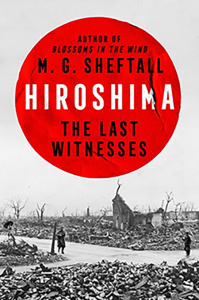"[Arms Control Today] has become indispensable! I think it is the combination of the critical period we are in and the quality of the product. I found myself reading the May issue from cover to cover."
April 2025 Books of Note
April 2025

Ending the Nuclear Arms Race: A Physicist’s Quest
By Frank N. von Hippel
Lynne Rienner Publishers
2024
This book is a personal account of physicist Frank von Hippel’s decades-long efforts to reduce the risks of nuclear weapons. It starts with his early passion for physics, inspired by his grandfather’s role in the Manhattan Project. It then traces how the Vietnam War protests shaped his anti-nuclear beliefs, leading to his involvement in the Nuclear Freeze movement of the 1980s.
Von Hippel, a professor emeritus at Princeton University, is influential far beyond academia. He has advised multiple U.S. administrations in crises, spanning the Three Mile Island accident in 1979 to resolving the stalemate in negotiations with Iran on the Joint Comprehensive Plan of Action in 2015. The book also highlights his collaboration with Soviet leader Mikhail Gorbachev’s scientific advisers, which helped end nuclear testing and reduce U.S. and Soviet arsenals. What distinguishes this memoir is the delicate balance of technical specificity and accessibility. Von Hippel explains complex issues with precision and immersion that will likely engage both experts and regular citizens. The book is a timely reflection on the power of science and one man’s quest to affect nuclear policy outcomes, making it a must-read for anyone interested in nuclear matters.—DONIYOR MUTALOV

Hiroshima: The Last Witnesses
By M.G. Sheftall
Penguin Publishing Group
2024
This first installment of a two-volume series examines the events and aftermath of the U.S. atomic bombing of Hiroshima Aug. 6, 1945. Drawing from the author’s personal interviews and encounters, the book offers a deeply human perspective on the catastrophic consequences of nuclear warfare. It explores the limited understanding that U.S. military personnel had of the bomb and its devastating effects. The book also delves into Japan’s wartime kamikaze philosophy, tracing its roots in the samurai moral code of self-sacrifice to the suicide attacks by Japanese fighter pilots in World War II. The author explains how the United States underestimated this factor. By juxtaposing the present-day image of Hiroshima with its wartime legacy, he also critiques the longstanding “peace discourses” promoted by the Japanese and U.S. governments and explores the complexities of memory and reconciliation. Later chapters focus on poignant personal stories of the hibakusha—civilian survivors of the atomic bombing—and make their lesser-heard narratives accessible to English speakers. The harrowing tales of the hibakusha, as well as stories of those lost and injured in the bombings, speak for themselves. The book details the far-reaching consequences of nuclear weapons, from environmental destruction to humanitarian crises, and examines postwar Japan’s profound sociocultural and religious transformation. The second book, Nagasaki: The Last Witnesses, expected in 2025, will document the stories of hibakusha from Nagasaki. —SHAGHAYEGH CHRIS ROSTAMPOUR
